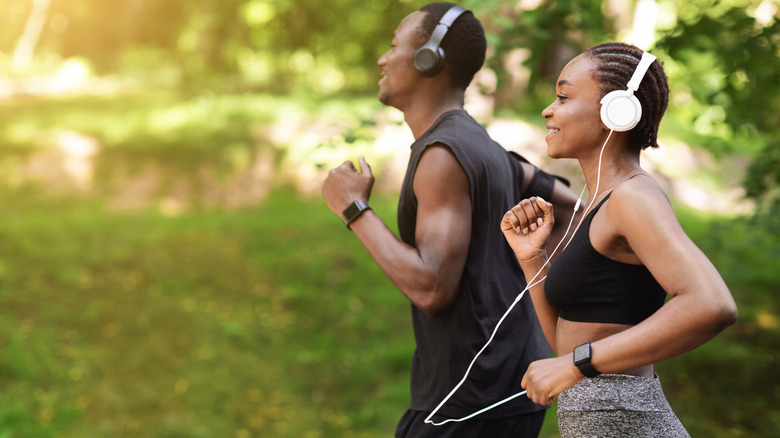Is There An Optimal Time Of Day To Exercise Based On Your Gender?
From improved strength, flexibility, and balance to a reduced risk of conditions like diabetes, high blood pressure, and cancer, exercise offers a number of benefits (via the National Institute on Aging). But is there a time of day that is better to exercise? Research suggests there may be.
A small study published in Frontiers in Physiology reveals that gender may impact the results of exercise performed in the morning or at night. Researchers followed 30 women and 26 men between the ages of 25 and 55 who participated in a 12-week exercise program. The participants were considered "highly active," meaning they exercised consistently for 30 minutes at least four days per week for at least three years.
The exercise program included stretching, strength training, endurance training, and interval sprints. Participants were divided into two groups: one group exercised between 6:30 a.m. and 8:30 a.m and the other group exercised between 6:00 p.m. and 8:00 p.m. Most of the exercise sessions lasted less than an hour with the exception of endurance training that lasted at least 60 minutes (via Healthline).
Women may benefit more from exercising early in the day
The data showed that exercise improves all fitness outcomes regardless of when it is done. However, the time of day a person chooses to exercise can have what the authors called "profound impacts" on cardiovascular and metabolic health, body composition, and performance.
Specifically, women who exercised in the morning hours burned more abdominal fat, saw a reduction in blood pressure, and enjoyed an increase in muscle power in the lower body. On the other hand, women who exercised in the evening enjoyed better moods and saw an increase in endurance and muscle strength in the upper body.
Conversely, men who exercised at night burned more fat and experienced a decrease in systolic blood pressure, and a reduction in cholesterol levels. In addition, men experienced a decrease in fatigue. Researchers noted that their findings highlight how circadian rhythms may play a part in physical performance, adding that more research was needed.


